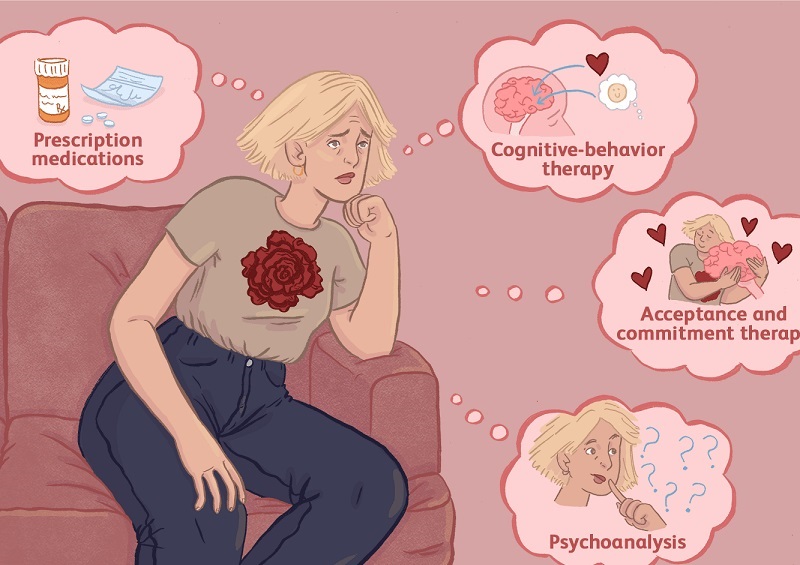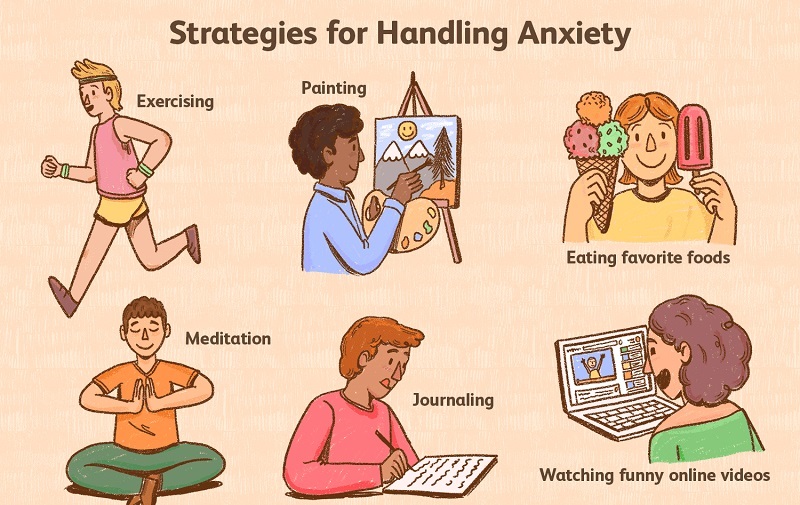
Anxiety Medication can help with treating many of the symptoms of anxiety, and it isn’t surprising when a patient is partaking in treatment too. Depending on the severity and length of side effects, a person might be recommended anxiety medication for the short-term or the long-term.
However, Can Anxiety Medication Lead to Dependence?
Some people battle to effectively sedate their uneasiness. They try numerous medications, similar to SSRIs or SNRIs, without leading on one plan that facilitates their side effects. They might try non-addictive anxiety meds like buspirone. But, if none help facilitates the uneasiness, by then, their primary care physician might go to the heavy-hitters, known as benzodiazepines or benzos. Drugs like Xanax, Valium, and Rohypnol are utilized for extreme tension and panic attacks.
With cautious oversight, a patient can thrive with one of these prescriptions and keep their nervousness under control, even stopping panic anxiety in their tracks with these effective medications. They can carry on with a useful, normal life without break from tension when benzo is taken as recommended.
But prescriptions like these can turn out to be genuinely habit-forming. If a benzodiazepine isn’t taken as recommended, and assuming a patient isn’t getting similar outcomes they were getting, there can be a temptation to take more of the medication until they get the feeling they crave.

Extreme Consequences of Anxiety Medication
All anti-anxiety medications have secondary effects. Of the classes of anti-anxiety medications, just benzodiazepines are effective. But benzodiazepines also convey a real danger for fixation. Benzodiazepines are successful over a short-term period, commonly under about a month. All classes of anti-anxiety medications require a specialist’s direction to stop, as suddenly stopping these meds after taking them for a week or longer can cause serious, even briefly crippling side effects.
Benzodiazepine Aftereffects
Restoril (temazepam, Normison) Side Effects: Temazepam secondary effects incorporate dry mouth, sickness, muscle shortcoming, disarray and touchiness. Restoril is strong and has a high potential for misuse.
Valium (diazepam) Side Effects: Some of the most widely recognized secondary effects after taking diazepam incorporate sleepiness, dizziness, fatigue, memory issues, queasiness, dry mouth, slurred discourse and obscured vision.
Xanax (alprazolam) Side Effects: Similarly, taking alprazolam can cause laziness, discombobulation, sleep deprivation, memory issues, poor balance, difficulty concentrating, and slurred discourse among others.
Klonopin (clonazepam) Side Effects: Clonazepam’s belongings incorporate unsteadiness, muscle throbs, obscured vision, exhaustion, melancholy, nervousness, and confusion. Moreover, it can increment suicidal thoughts and behaviour.
Temesta: Temesta’s side-effects incorporate languor, hyperactivity, queasiness, blacking out and skin rashes. Temesta can cause memory debilitation.
Serotonin-Norepinephrine Reuptake Inhibitors Side Effects
SNRI aftereffects can incorporate agitated stomach, a sleeping disorder, sexual brokenness, cerebral pain or a little expansion in blood pressure. SNRIs can require days to weeks to begin working, so they are not compelling for a fit of anxiety or panic attacks that is in progress. They work to forestall mental breakdowns from happening at all.
Selective Serotonin Reuptake Inhibitors Side Effects
SSRI sequelae include nausea, sleep problems, sexual relationship problems, earthquakes, and sometimes nervousness. Like SNRIs, SSRIs don’t work immediately. Whenever they have arrived at a helpful level in a person’s body, they can forestall uncomfortable levels of anxiety arising.
Tricyclic Antidepressant Side Effects
Tricyclic antidepressants might cause serious incidental effects, including dry mouth, hazy vision, urinary retention, constipation and orthostatic hypotension.

How to Relieve Anxiety?
Anxiety and dependence on anxiety medicine can be dealt with. When taking a possibly habit-forming drug for tension, a double diagnosis can happen. This is the point at which you experience addiction as well as a mood disorder. It’s more difficult to treat two problems so recovery should join an assortment of tools. Benzodiazepine use in the United States is predominant and many are conceded into treatment projects to assist them with recuperating. At the point when a patient quits utilizing an enemy of tension drug, they can turn out to be all the more intensely restless. To this end bunch treatment and one-on-one treatment is fundamental. Some might observe all-encompassing medicines like reflection will help them with tracking down the psychological equilibrium in their life. Benzo addiction stories exhibit that somebody with tension can’t stay on these meds for a long period. While on the drug, this is an ideal opportunity to figure out how to more readily oversee uneasiness. To keep utilizing benzodiazepines or misuse them will just fuel the issues you’re trying to recuperate. Proficient treatment for benzodiazepines dependence is likely necessary. The removal can be perilous so clinical detox might be fundamental.
It is essential to discuss consistently with your primary care physician when you are taking uneasiness prescriptions, particularly if you are endorsed some other drugs. Monitor your indications so they can track down the best drug for you, and monitor any side influences you experience. Above all, it’s important to not get discouraged if an anxiety drug isn’t an ideal choice for you. With tolerance, perception, and communication, you and your doctor can track down the medicine that best fits your symptoms and needs.
